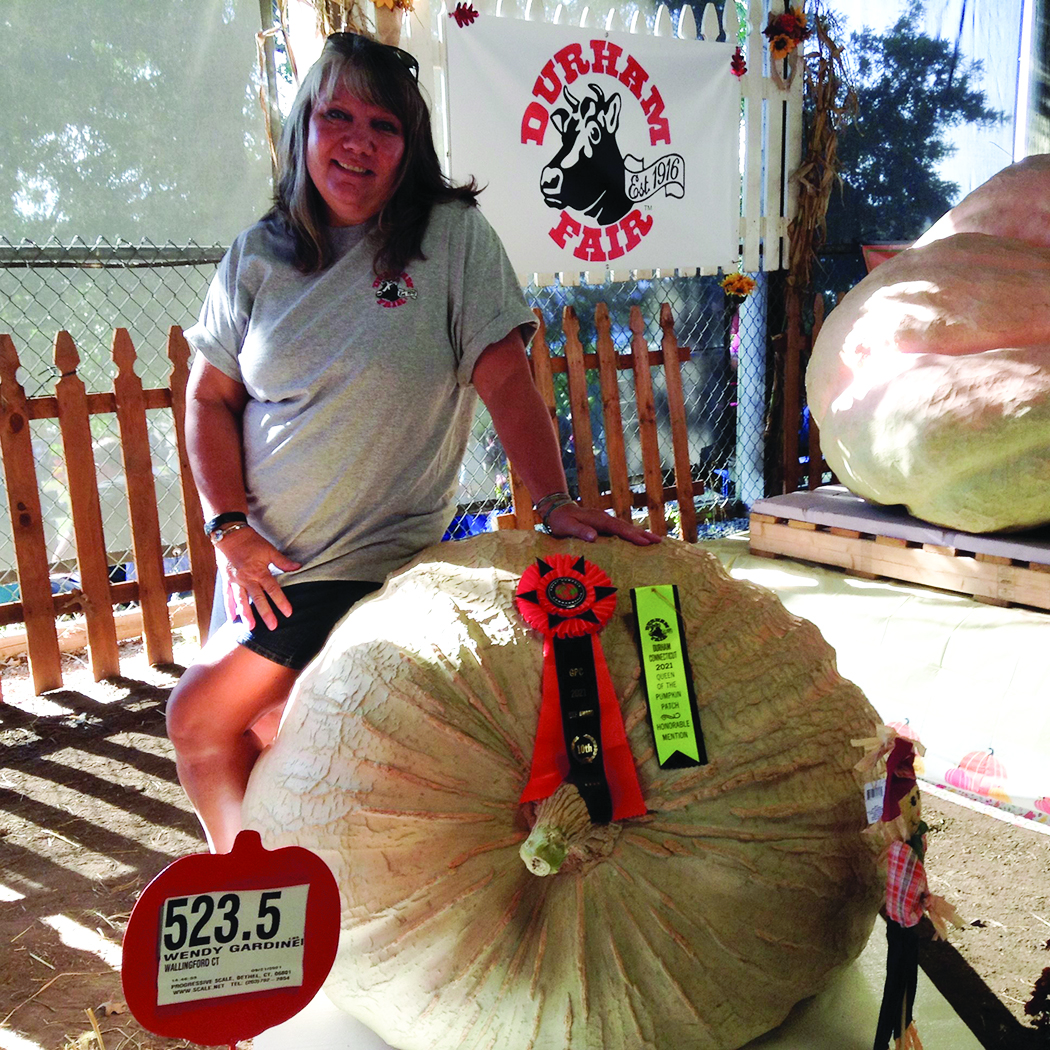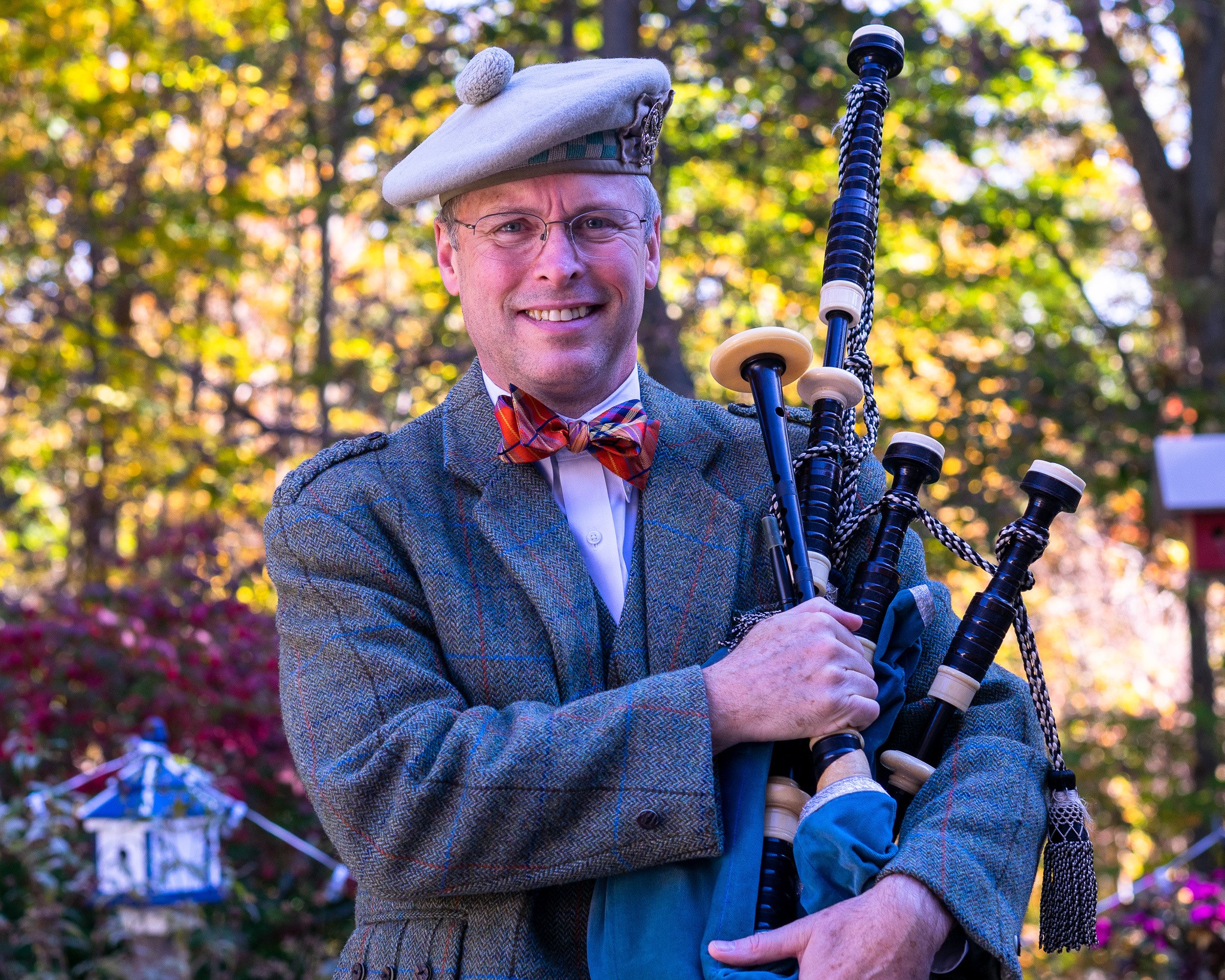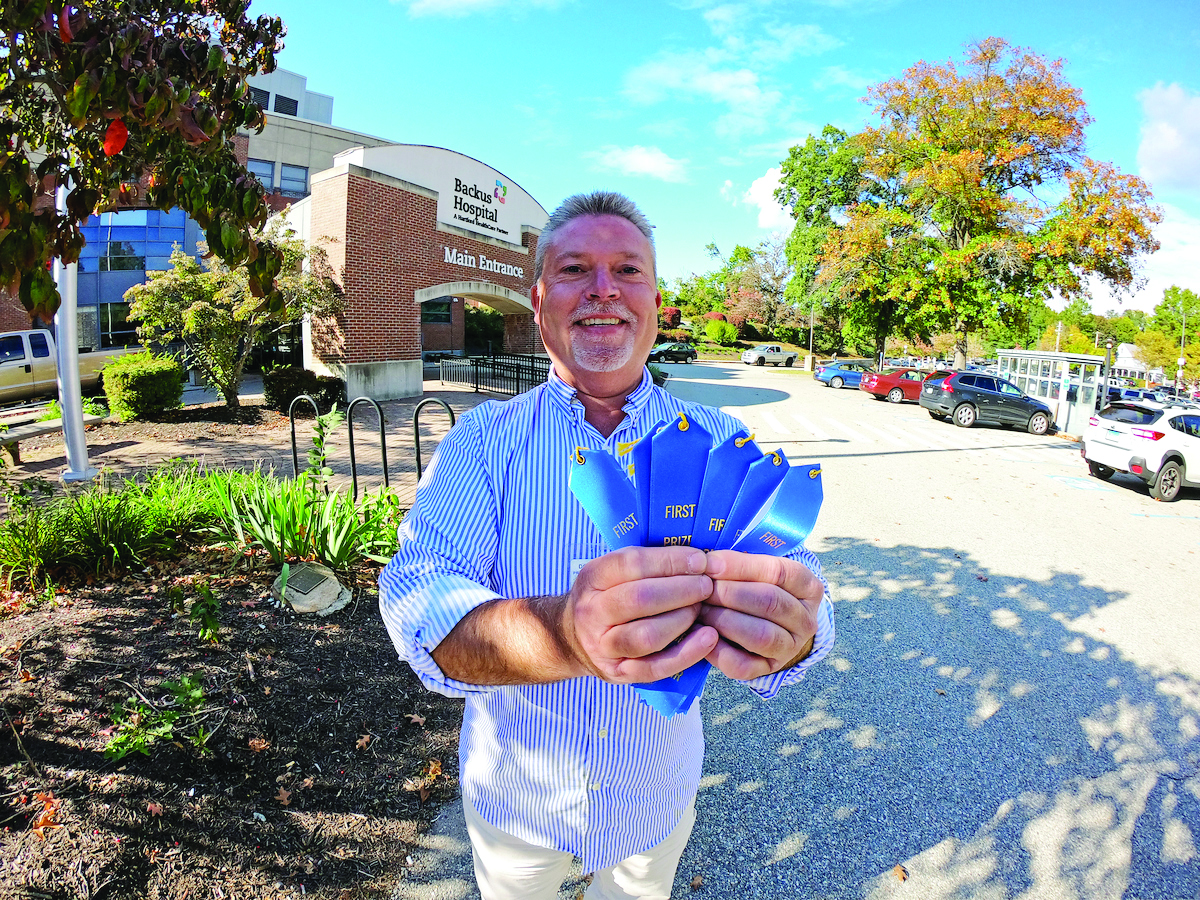This is Us
Hartford HealthCare might be where we work, but when we asked you where you find fun, relaxation or deeper meaning in your lives, we were astonished at the variety of hobbies and activities you pursue in your spare time. Here are a few of those stories, and we’ll have more in upcoming issues of Moments. To share your hobby, email susan.mcdonald@hhchealth.org.

Wendy Gardiner won 10th prize at the Durham Fair last year for her 523.5-pound pumpkin.
Patience, Good Soil Yield Great Pumpkins
Wendy Gardiner, Patient service coordinator Ayer Neuroscience Institute Headache Center, Cheshire
Wendy Gardiner spends her weekdays helping ensure patients coming into her Cheshire offices for treatment of their headaches have access to everything they need to improve their health. In her spare time, she offers nurturing of a different sort, coaxing life from the ground as a cultivator of award-winning giant pumpkins.
How did you get the idea to start growing giant pumpkins?
We always had a fascination viewing the giants at our local fair. We started this as a hobby, as most do. We are now addicted! In 2019, a local grower and friend gave us a giant pumpkin plant. We didn’t know what we were doing, and we failed.
That winter, we did a lot of reading, research and watching YouTube videos. We were determined.
What is the secret to growing big pumpkins?
Growing pumpkins requires sun, warm weather, lots of water, organically rich warm, evenly moist soil, fertilizer and room to grow.
Do you grow anything else?
We love to grow a lot of things, hence the last name, “Gardiner!” We also grow field pumpkins, tomatoes, corn, peppers, gourds, flowers and sunflowers. We harvest all the seeds from everything we grow to use for the years to come.
What awards did you win at last year’s fair?
I came in 10th place for my 523.5-pound pumpkin. My husband won fifth place for his 950.5-pound pumpkin and the Howard Dill Award for the prettiest
pumpkin. We also received other ribbons at this year’s fair, including first place for my chicken eggs, third place for the tallest sunflower at 13 feet, and first place for my gourds.
What do you do with the pumpkins once they are fully grown or after you enter them into a competition?
After the fair competitions, we display our pumpkins in the yard for the neighbors to see. They have been following our growing journey and we love when they stop by to ask questions. At the end of October, we cut them up to harvest the seeds. We feed some to the deer and our chickens and use some to create compost for our pumpkin patch.
Do you plan to enter your pumpkins for competition in 2022?
We will enter again at the Durham Fair. We are hoping to grow more giants to enter other weigh-offs throughout New England. Fingers crossed!
—Emily Perkins

Terry Manning has competed internationally with pipe bands and solo in the three decades he’s been playing bagpipes.
Random Present Sparks Life-long Hobby
Terry Manning, H3W lean sensei System Support Office
Terry Manning has worked at Hartford HealthCare since 2019 as an H3W lean sensei in the
Operational Excellence Department of the System Support Office, supporting St. Vincent’s Medical Center and Integrated Care Partners (ICP). For nearly 30 years, he has been honing his craft as a bagpiper, including participating in bagpipe bands and competing in Highland Games, becoming a Grade 2 Level bagpiper.
When did you start playing the bagpipe and why?
I started playing the bagpipes after my mom gave me a practice chanter for Christmas back in 1991. I didn’t know what it was when I opened it, and never really had any intention of learning the bagpipes until that moment. I have played the piano all of my life, so I already knew how to read music, and thought, “How hard could it be?” It’s hard.
Is this just a hobby or do you play professionally?
This is only a hobby, but one I continue to do despite no longer being involved in a bagpipe band. I was a member of the Celtic Cross Pipes and Drums in Danbury between 1992 and 2001, and the Manchester Pipe Band between 2002 and 2015. I have been competing in solo bagpipe contests at Highland Games since 2016 all over the East Coast. I’ve reached a Grade 2 Level, and will continue to pursue a Grade 1 Level in the years ahead.
What does Grade 2 Level mean?
Grade 2 is one of six grade designations earned through competing in sanctioned solo competitions hosted in the United States. All pipers start at Grade 5 and, through placing in solo contests, points are earned to move up. Top-ranked pipers in each grade are eligible to move upward in their grade at the end of the season. The goal is to earn a Grade 1 or “Open” status.
What is your favorite part about playing? Favorite song to play?
I enjoy playing jigs, reels and hornpipes, but also enjoy playing “big music” called Piobaireachd (pronounced “Peeb-rock”). Some call this type of music a form of “classical bagpipe music.” My favorite tune – there are so many — might be a tune called “Paddy’s Clam House,” which I wrote for my friend Dr. George Cohen, whose grandfather owned and operated Paddy’s Clam House in downtown Manhattan back in the 1930s.
What advice would you give others who are interested in playing?
My advice to those interested in learning to play the bagpipes is to find an instructor and be prepared to spend at least a year on a practice chanter practicing rudiments and a few easy tunes.
Any memories that stand out during your time playing?
I have piped at many interesting occasions, including memorial services, weddings and corporate events. One memory that stands out is piping with a Grade 2 pipe band at the North American Championship in Maxville, Canada, against so many outstanding bands. We took second in piping and first in drumming that day. It is so fun to be standing in the circle of outstanding musicians making such great music.
—Robin Stanley

Donald Simonides has won many awards for the vegetable spreads he creates from his backyard garden yield.
Prizes Prove Pepper Prowess
Donald Simonides, Facilities project manager East Region
Donald E. Simonides, a facilities project manager for real estate and construction who has worked for Hartford HealthCare for 26 years, grows tomatoes, squash and eggplant in the summer but he will be the first to tell you that “my passion is peppers.” What he creates with them wows family, friends, and judges at the county fair.
What do you grow?
I’ve been growing more than 20 types of peppers — mostly hot — since around 2008. What started with a few pots in my backyard in Kensington morphed into an operation that utilizes a sizable portion of my neighbor’s garden and my entire back deck.
The hottest variety of pepper I grow is the Carolina Reaper, which can score as high as 2.2 million Scoville Heat Units (SHU). SHU is a way of quantifying how spicy a pepper is by measuring the concentration of capsaicinoids. Capsaicin is the chemical responsible for the spicy sensation within a pepper. For comparison, the jalapeno scores about 5,000 SHU.
While I do grow those scary hot ones, they aren’t my favorites. I like the peppers that have heat and flavor. They give you that kick, but they don’t make you feel like you’re going to die.
How did you get started?
My neighbor gave me vegetables from his garden one year and that actually got me started growing my own. It became a labor of love. Actually, it’s almost like an addiction. The garden is a great stress reliever, and even more so during the pandemic. I’m outside, I’m active, it’s gratifying.
With my father-in-law, I started drying and canning the peppers. Then, we branched out into sauces and jellies.
What do you make with the peppers?
From the hundreds and hundreds of peppers I harvest each summer and fall, I make a variety of hot sauces, jellies and relishes. My prize-winning relish recipe is from a cardiac rehab patient I met while working at Bradley Memorial Hospital (now The Hospital of Central Connecticut, Bradley campus). The patient would grab a coffee with me in the morning, and we got to talking about peppers. He gave me his recipe, and I tweaked it and worked on it, and eventually it became the recipe I use today.
I make three varieties of hot sauce, including a red one similar to Frank’s Red Hot that uses Thai chilis. The green sauce is a jalapeno/smoked poblano, and the orange one uses my favorite pepper, the Scotch bonnet, for an almost fruity hot sauce with Jamaican undertones.
I give most of the bottles and jars — labeled with my brand name “Donny Boy’s” — to my friends, family and colleagues.. And, every fall, I enter area fairs.
Do you win?
Well, this year, I pretty much swept all the categories at the Berlin Fair. I won 16 prizes, but I couldn’t do it without my family, friends and neighbors who help me. There are people who do what I do. It’s a friendly competition.
Are there growing tips?
Peppers’ heat is never uniform — a rainy season can “mild the peppers down” because of the extra water content. The beautiful colors of the peppers depend on the heat of the summer sun.
—Elissa Bass
